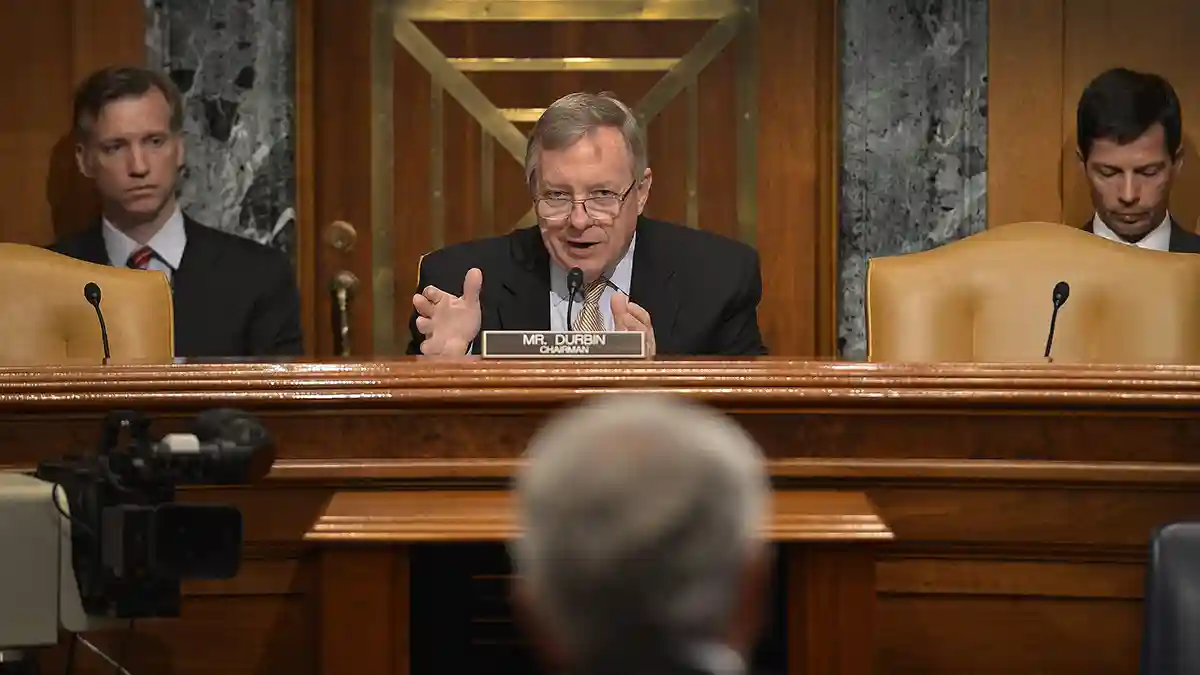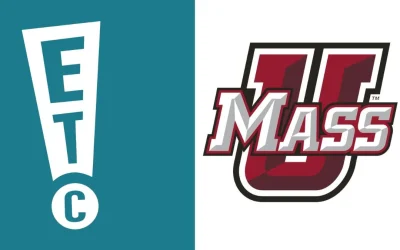A growing chorus of lawmakers and state attorneys general are raising alarms over what they call unlawful political influence within the Department of Justice’s antitrust enforcement — and the implications it may have for high-profile cases such as the government’s monopolization suit against Live Nation Entertainment and Ticketmaster.
Last week, U.S. Senate Democratic Whip Dick Durbin (D-IL) and Sen. Cory Booker (D-NJ), joined by eight other Senate Judiciary Committee Democrats, sent a sharply worded letter to Attorney General Pam Bondi questioning the department’s abrupt settlement of Hewlett Packard Enterprise’s (HPE) $14 billion acquisition of Juniper Networks. The senators accused DOJ leaders of bypassing Antitrust Division staff and caving to political lobbying pressure tied to the Trump administration.
“The disconnect between the settlement and the premise of the suit suggests that the settlement arose for reasons other than law and public interest,” the senators wrote, warning that partisan interference is undermining trust in DOJ enforcement.
They pointed to reports that senior antitrust staff opposed the deal and were later removed, while lobbyists with ties to the White House pushed for a resolution favorable to HPE.
The letter specifically flagged concerns about what this precedent could mean for ongoing antitrust actions, including the 2023 lawsuit alleging that Live Nation and its Ticketmaster subsidiary illegally maintain monopoly control over live event ticketing. “It calls into question how other enforcement actions will proceed, such as the monopolization suit filed against Live Nation-Ticketmaster last year, now that Live Nation-Ticketmaster has also retained Mike Davis as a lobbyist,” the senators wrote.
Those concerns were echoed by a coalition of 20 state attorneys general, led by Colorado AG Phil Weiser, who filed their own objection to the HPE/Juniper settlement. Their letter to the DOJ raised issues about the department’s approval of the merger. In it the states urged the court overseeing the case to hold an evidentiary hearing, citing “boozy backroom meetings” and high-level lobbying that allegedly pushed the deal through over the objections of DOJ’s own trial team. Weiser also called on leaders of key U.S. House and Senate subcommittees to investigate the merger.
“The U.S. Department of Justice’s Antitrust Division must operate under the rule of law and decide antitrust cases based on principles applied equally to all companies—regardless of their political ties,” Weiser said. “The allegations made about this settlement, and the defects of this settlement on its face, call out for scrutiny.”
The Mike Davis Factor
Central to those concerns is the involvement of Mike Davis, a conservative lawyer and activist who previously served as chief counsel for nominations to Senate Judiciary Chair Chuck Grassley before founding the Article III Project. Davis has long been influential in right-wing legal and political circles, particularly on judicial appointments. More recently, he has been retained as a lobbyist for corporations facing antitrust scrutiny, including Hewlett Packard Enterprise during its merger with Juniper Networks — and now, Live Nation-Ticketmaster.
According to reporting in The American Prospect, Roger Alford, a former top Antitrust Division official who was fired after opposing the HPE/Juniper settlement, directly named Davis as part of a “pay-to-play” system inside DOJ. Alford described how Davis, along with other lobbyists with Trump-world ties, allegedly secured million-dollar “success fees” by overruling career antitrust staff and leveraging relationships with senior DOJ political appointees.
Alford warned that this same model of influence-peddling could extend to other major cases, pointedly asking whether the Live Nation-Ticketmaster monopoly suit would be next.
“Will the same senior DOJ officials ignore the President’s Executive Order just because Live Nation and Ticketmaster have paid a bevy of cozy MAGA friends to roam the halls… in defense of their monopoly abuses?” he said in his Aspen Forum speech.
Live Nation’s Trump Playbook
As TicketNews previously reported, Live Nation has aggressively adopted the same approach that HPE used to secure its settlement. The company has hired Davis and other Trump-aligned lobbyists as it stares down a lawsuit seeking to unwind its 2010 merger with Ticketmaster and potentially break up its control over ticketing, promotion, and venues.
That lobbying push is part of a broader “charm offensive” aimed at winning favor in Trump’s Washington. Among its moves:
- Board appointments: In May, Live Nation added Richard Grenell, a Trump confidant and current Kennedy Center president, to its board, a move insiders described as a thinly veiled attempt to curry political favor.
- Venue blitz: The company unveiled a $1 billion investment plan for new and upgraded venues, tying the announcement to Trump’s March executive order on ticketing, despite planning the projects years earlier.
- Political cash: Federal records show Live Nation contributed $500,000 to Trump’s inaugural committee, making it one of the largest corporate backers of the festivities.
- Lobbying firepower: Alongside Davis, the company retained GOP fundraiser Brian Ballard, whose firm disclosed active lobbying on ticketing policy this year.
Critics say these efforts mirror HPE’s “America-first” jobs pitch that helped blunt DOJ opposition, and raise the prospect that Live Nation could secure a favorable resolution at the expense of consumers.
“To the millions of concert-goers and sports fans that attend live events in the U.S., Live Nation-Ticketmaster is synonymous with a corrupt monopoly,” economist Diana Moss told TicketNews. “That’s pretty clear in the company’s efforts to spin venue investment plans to curry favor with the Trump administration and installing its sycophants on the Live Nation board.”
A Test for DOJ Credibility
The Tunney Act, passed in the wake of Watergate, requires courts to ensure DOJ antitrust settlements are in the public interest and free from undue political influence. Both Senate Democrats and the state AGs argue that the HPE case is a textbook example of the type of improper backroom dealing the law was designed to prevent.
For the ticketing industry, the controversy raises fresh questions about whether DOJ’s landmark case against Live Nation and Ticketmaster — seen as a test of federal resolve to rein in monopoly power — will be pursued based on merit, or derailed by the same political pressures alleged in the HPE settlement.
The senators are demanding documents from DOJ leadership regarding communications with White House officials and lobbyists not only in the HPE case, but also in the Live Nation-Ticketmaster matter. The state AGs, meanwhile, are pressing for courtroom scrutiny that could force the department to defend its processes in public. Whether these challenges succeed may determine not just the future of the HPE merger, but also the credibility of the government’s broader antitrust agenda — including its bid to unwind Live Nation and Ticketmaster’s dominance of the live events business.



